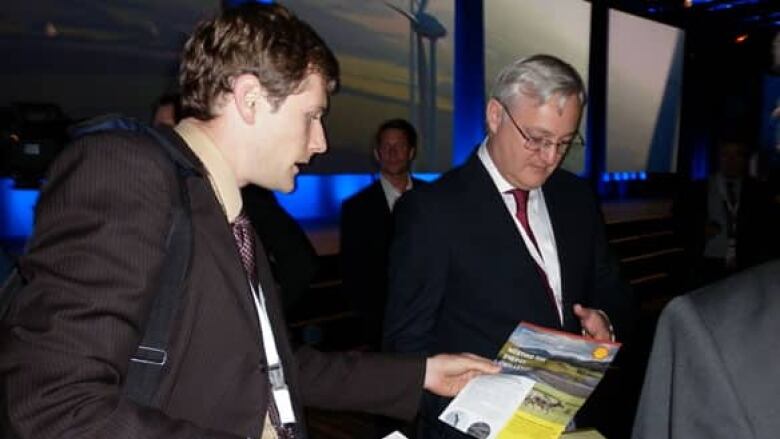Natural gas risks worthwhile: Shell CEO
Canada is home to many promising natural gas reserves trapped underground

'Whether we like it or not, producing energy and delivering it to billions of customers around the world comes with certain risks. Rather than closing our eyes to that reality, we must confront risks and manage them.' Peter Voser, Royal Dutch Shell CEO
Royal Dutch Shell CEO Peter Voser told delegatesat the conference that the world is on the cusp of a natural gas supply boom.
He said recent events like the Gulf of Mexico oil spill are a reminder that sometimes things can go wrong.
"I realize that there's some public concern that fracturing could affect fresh water layers in the ground," Voser said in his keynote speech at the conference.
"We take that concern seriously Whether we like it or not, producing energy and delivering it to billions of customers around the world comes with certain risks.
"Rather than closing our eyes to that reality, we must confront risks and manage them as effectively as we can."
However,Voser strongly defended the potential of natural gas as a clean and abundant energy source that will help countries reduce their overall greenhouse gas emissions. He even called on governments Monday to loosen regulations, and allow natural-gas extraction to reach its full potential.
The head of Europe's largest oil company says the fuel will play a bigger role in the global energy mix in the coming decades.
He predicts the world's annual natural gas demand will increase by 25 per cent by 2020 and almost 50 per cent by 2030 as emerging countries like China continue to grow.
"A key question is whether the world's appetite for natural gas will keep pace with supplies," Voser said.
Tapping into deep gas reservoirs is easier than ever with the help of new technology and Canada is home to many promising reserves trapped underground.
Shell owns extraction rights in British Columbia, where the corporation is already producing enough gas to power more than 400,000 homes. Voser used Shell's operations in B.C. to illustrate Canada's potential in shale and tight gas, both of which must be extracted from rock deposits.
In one unconventional extraction method called hydraulic fracturing or "fracking" water, chemicals and sand are blasted down a well to release gas from shale.
'Fracking' is controversial
Shale gas production has ignited public fears of water contamination in Quebec and B.C., where the drilling either exploratory or productive has already begun.
Exploratory drillingin lowlands along the shores of the St. Lawrence River this past year have prompted some communities to call for a moratorium on shale gas activity.
Those concerns have prompted the Quebec government to schedule public hearings this fall and conduct an environmental review on the issue.
Quebec is also set to review its mining laws later this year.












_(720p).jpg)


 OFFICIAL HD MUSIC VIDEO.jpg)
.jpg)



























































































